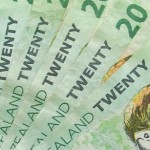The euro traded lower against the US dollar on Wednesday amid speculation the Federal Reserve will further trim its bond-buying program and will link its forward guidance as to when it will increase interest rates to a range of economic indicators.
EUR/USD touched a session low at 1.3900 at 14:40 GMT, after which the pair trimmed some losses to trade at 1.3913 at 15:50 GMT, losing 0.15% for the day. Support was likely to be received at March 18th low, 1.3880, while resistance was to be encountered at March 18th high, 1.3943. On March 13th, the pair touched 1.3966, the strongest since October 2011.
The Federal Open Market Committee concludes a two-day meeting today, the first presided by Fed’s new Chief Janet Yellen. Greenbacks demand was supported as broad market expectations called for a further reduction of the central bank’s Quantitative Easing program, which tends to devalue the US currency, by $10 billion per month, in line with the Federal Reserve’s previous decisions. The central bank will probably give up its 6.5% unemployment-rate threshold, replacing it by qualitative guidance for signaling when it will consider raising the main interest rate.
“The market is being a little prudent ahead of the decision, and that’s leading yields a little bit higher, dollar a little higher,” Sebastien Galy, a senior currency strategist at Societe Generale SA in New York, said in a Bloomberg interview of the Fed meeting.
Yesterday, data showed that building permits in the US rose more-than-expected in February, backing the case for further stimulus cuts.
Building permits for future projects rose 7.7% to a 1.018 million annualized pace last month, the most since October, data by the US Department of Commerce showed today. The number of permits filed for future projects in January was upward revised to a 0.945 million pace from a 0.937 million reported earlier. Analysts had expected a smaller gain to a 0.960 million pace in February. The increase reflected a surge in applications for apartment-building construction. However, one-family building permits declined for a third consecutive month, reaching the weakest level in a year.
The US dollar declined 1% in the past 12 months, while the euro gained 7.9 percent, according to Bloomberg Correlation-Weighted Indexes, which track 10 developed-nation currencies.
Meanwhile, in the 18-nation common currency bloc, the labor cost index was reported today to have increased 1.4% during the final quarter of 2013, compared to the same period a year ago.
In addition, output in region’s construction sector expanded 8.8% in January 2014 compared to January 2013. In monthly terms, output rose 1.5% during the first month of the year.
Elsewhere, EUR/CAD touched a session high at 1.5587 at 11:30 GMT, after which it consolidated at 1.5562, adding 0.3% for the day. Support was likely to be received at March 18th low, 1.5332, while resistance was to be encountered at December 14th 2009 high, 1.5601.




